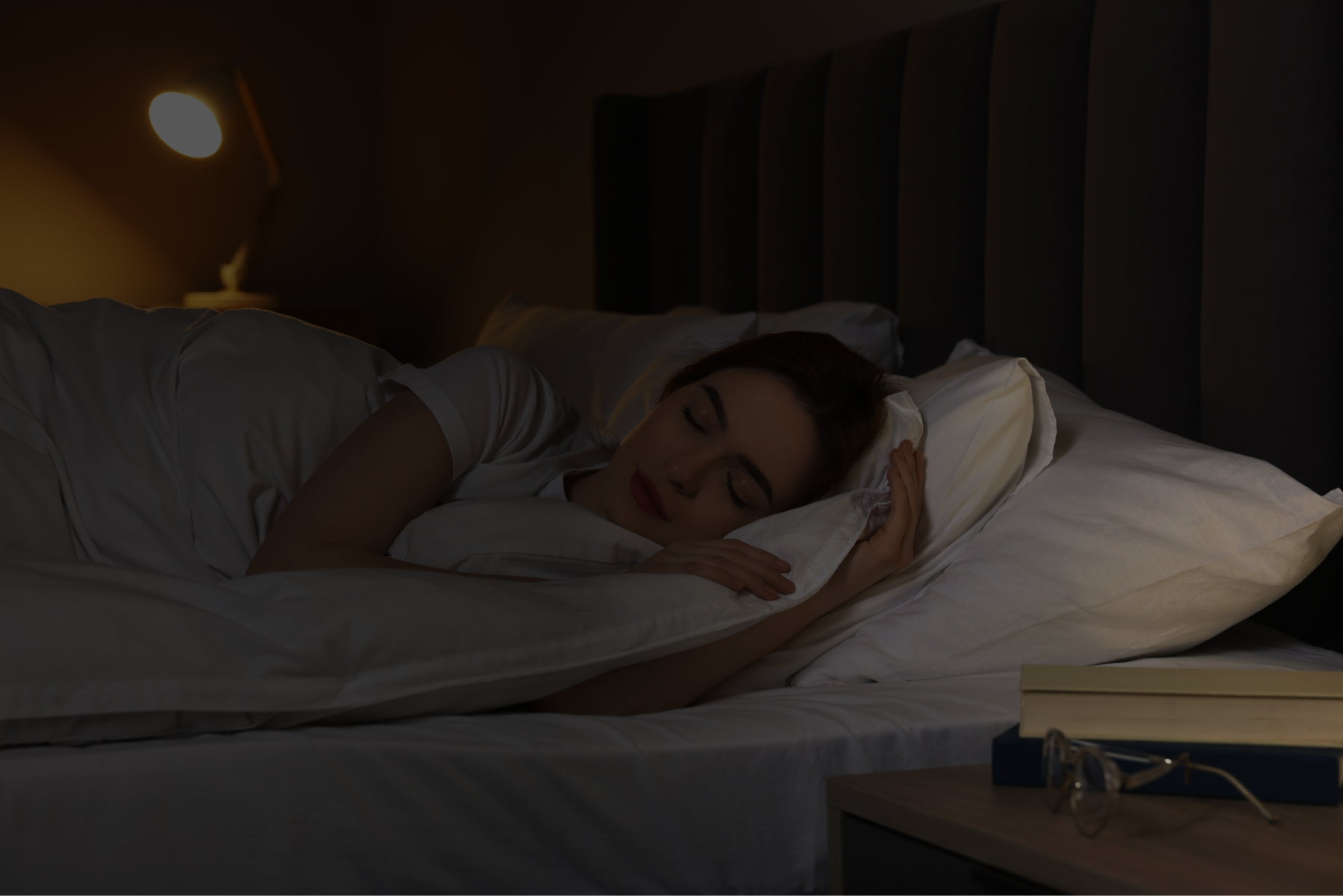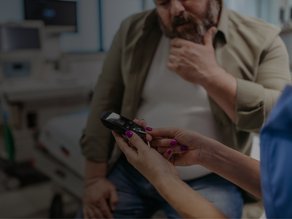Type 1 diabetes and sleep

Type 1 diabetes and sleep
Sleeping well is important, but type 1 diabetes can sometimes make it difficult — for example, due to nighttime hypos. Poor sleep also affects blood glucose levels.
That’s why Diabeter is happy to help you find ways to sleep better with type 1 diabetes.
GoOD TO KNOW
Sleep problems
Type 1 diabetes can make it difficult to sleep well.
Consequences of poor sleep
Not getting enough sleep or waking up frequently during the night is unpleasant. It also affects how well insulin works.
Better sleep
There are ways to improve sleep with diabetes. Diabeter is happy to help you with this.
Sleep problems
Sleeping well at night is important. But with type 1 diabetes, this isn’t always easy. People with diabetes may sleep poorly or wake up more often during the night. This can have several causes, such as:
- Fluctuating blood sugar levels: When blood glucose is too high or too low at night, it can lead to frequent waking. This might be due to a nighttime hypo, with symptoms like sweating, trembling, and heart palpitations, or a hyper, which causes increased urination and thirst.
- Alarms from a glucose sensor: Someone with type 1 diabetes who monitors their blood sugar using flash glucose monitoring (FGM) or continuous glucose monitoring (CGM) may be woken up by beeping from the sensor. These alarms warn of low or high blood glucose levels. While the sounds are important, they can also disrupt sleep.
Nighttime Hypos
Several factors influence blood glucose levels during the night. A hypo while sleeping can have multiple causes. It’s important to recognize what triggers a hypo. The diabetes specialists at Diabeter can help you identify the cause that applies to you. For example:
- Too much insulin in the body: Sometimes the amount of insulin administered isn’t quite right. If there’s too much insulin in your system when you go to sleep, your blood glucose may drop too low.
- Physical activity during the day: Exercise and diabetes are a good combination, but physical activity affects blood glucose levels. Exercise makes insulin work more effectively, and this effect can last more than a day. That means sports or exertion during the day can still cause a hypo at night.
- Insulin buildup: Frequently injecting insulin in the same spot can create a lump or hardened area. The infusion set of an insulin pump can also cause insulin to accumulate under the skin. This is called a buildup. The insulin doesn’t release gradually but in bursts, which can result in more insulin being released than expected.
- Hormones: Your body contains various signaling substances called hormones, which help regulate bodily functions. Hormones also affect glucose levels. During puberty, hormonal changes are especially intense, which can lead to fluctuating glucose levels.
A Hypo at Night, a Hyper in the Morning
A nighttime hypo isn’t always noticeable. It can happen that your blood glucose drops during the night, and you wake up with a high blood glucose level. This sometimes occurs when someone injects too much long-acting insulin, causing a hypo.
The body tries to correct this, which can lead to a sharp rise in blood sugar. Some people with type 1 diabetes notice this through morning headaches. However, a headache in the morning doesn’t always mean blood sugar was too low during the night.
Consequences of poor sleep
Type 1 diabetes affects sleep, and poor sleep in turn has consequences. After a bad night, it becomes harder to focus on managing your diabetes. Short sleep also reduces the effectiveness of insulin in your body. This is due to several processes, such as:
- The body’s response to stress: Poor sleep influences stress hormones like cortisol. These hormones make the body more active and reduce insulin absorption, causing blood sugar levels to rise.
- Disruption of the day-night rhythm: Lack of sleep confuses the body’s internal clock, also known as the biological rhythm. The body absorbs insulin differently at various times of the day, and irregular sleep disrupts this pattern.
- Glucose storage: During sleep, the body stores glucose in muscles and the liver. This process is less effective when sleep is insufficient or poor, resulting in reduced glucose storage and less effective insulin action.
Better sleep
t’s not a problem if you sleep poorly once in a while — everyone experiences this, even people without type 1 diabetes. But if poor sleep happens often, it’s important to identify the cause.
Our care team (pediatric endocrinologist / internist, diabetes nurses) is happy to help find solutions if you are being treated with us. Together with your team, you can review what has already been assessed and what might still offer new insights.
Diabetes technology such as flash glucose monitoring (FGM) or continuous glucose monitoring (CGM) can support this. Sometimes, just a few nights with a glucose sensor are enough to better understand what happens to your blood glucose during sleep. If the glucose sensor works together with an insulin pump, they can — with the help of an algorithm — help keep your blood sugar levels within a normal range as much as possible.
The goal of our team is to make your nights as stable as possible in terms of blood glucose. That also means a more peaceful night for those around you (parents, partner).
It’s not always easy to achieve, but remember: you’re not alone — your diabetes team at Diabeter is here to help you.
Take the first step toward better diabetes care.
WE ARE HERE FOR YOU
Start your treatment at Diabeter



